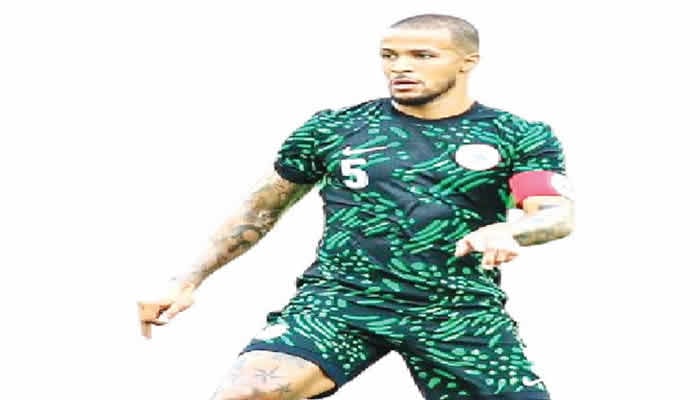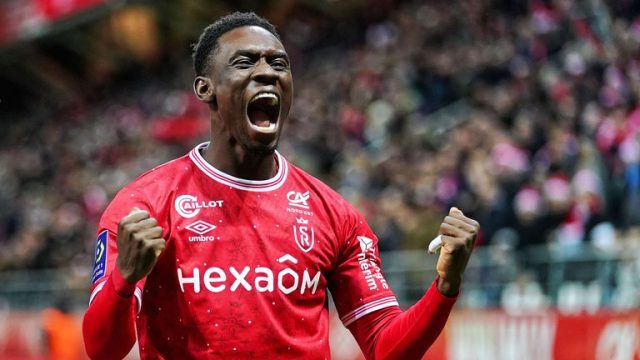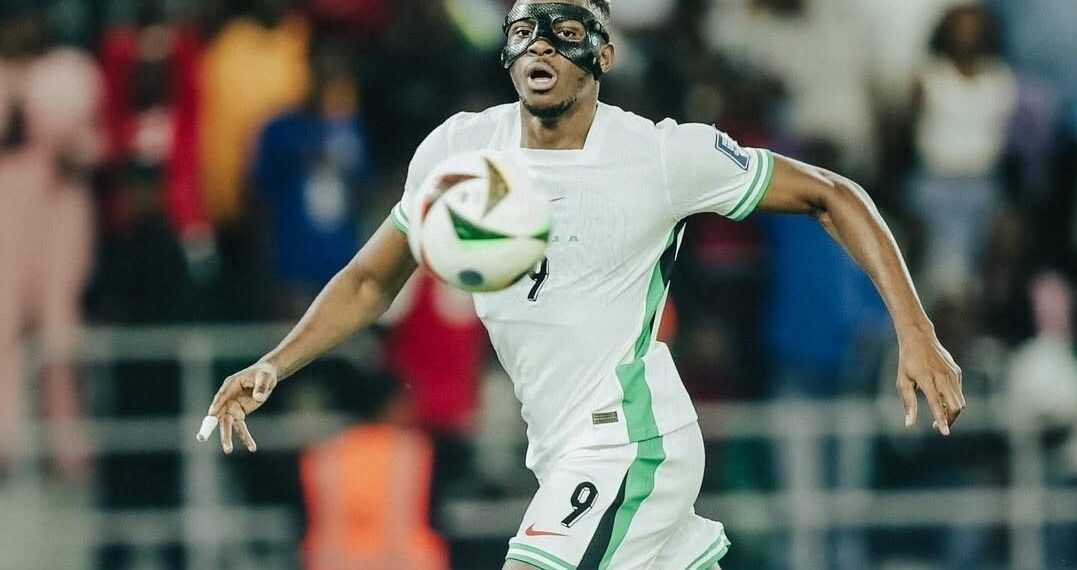Across Nigeria, homes, beer parlours, and viewing centres buzzed with excitement as the Super Eagles took to the field for a pivotal 2026 FIFA World Cup qualifying match against Lesotho. The air was thick with anticipation, with fans from Lagos to Kano, and even across West Africa, eagerly following every pass and tackle. This match, bursting with significance for Nigeria’s World Cup hopes, saw a dramatic turn when captain William Troost-Ekong stepped up to the penalty spot, etching his name once again into the annals of Nigerian football.
According to match reports as of press time, the decisive penalty was awarded after the referee pointed to the spot following a handball incident in the Lesotho box. Troost-Ekong, as calm as ever under pressure, confidently dispatched the ball, sending the Lesotho goalkeeper the wrong way. The stadium erupted—both those in attendance and viewers around the continent—celebrating Nigeria’s opening goal. Such moments capture not only the flair of the Super Eagles but also the hopes and dreams of millions who see football as more than just a game, but a symbol of national pride and unity.
Building Momentum on the Road to 2026
For Nigeria, qualifying for the FIFA World Cup is an immense point of pride. The Super Eagles have a storied history on the global stage, having appeared at the World Cup six times since 1994. Every qualifying matches carries with it the weight of expectation, especially from the passionate Nigerian football community. “Qualifying is not just about football – it’s about raising Nigeria’s flag among the best in the world,” says Samuel Adegboye, a Lagos-based sports analyst. “Every match matters. The players know that, the fans know that, and even those who may not typically watch football find themselves caught up in the drama.”
The Importance of Leadership
William Troost-Ekong, who has worn the captain’s armband with dignity and determination, is widely respected for his composure in high-pressure situations. After the match, he told reporters, “As captain, my job is to lead by example, both on and off the pitch. It’s a privilege to represent Nigeria and to give our people something to cheer about.” The significance of his calm penalty cannot be overstated: in must-win situations, leadership is often what separates victory from defeat.
Competition Heats Up Across Africa
Nigeria is not alone in its quest for World Cup qualification. Elsewhere on the continent, teams like South Africa and the Benin Republic are competing fiercely as the group stage matches unfold. According to the Confederation of African Football (CAF), the new qualification format makes every fixture crucial, adding extra intrigue and pressure.
As of the latest updates, matches remain tightly contested, with draws and narrow victories keeping fans on the edge of their seats across the region. It’s a testament to the growing quality and competitiveness of African football, where surprises are as likely as upsets. “Gone are the days when a few teams dominated,” notes Ghanaian sports journalist Kwame Mensah. “Every nation now dreams of World Cup glory, and the playing field is more level than ever.”
The Nigerian Fan Experience
Football culture is woven into the fabric of Nigerian society. From on-the-spot radio broadcasts in bustling markets to multi-generational families gathered around televisions, the Super Eagles’ progress resonates far beyond the pitch. Social media was abuzz throughout the match; posts, memes, and spirited debates about tactics, refereeing decisions, and individual players trended under hashtags like #SuperEagles and #RoadTo2026.
Emeka Nwosu, a football enthusiast at a popular Abuja viewing centre, remarked, “Seeing Troost-Ekong score lifted everyone’s mood. There’s something magical about watching your country do well—it brings people together, even if just for 90 minutes.” This unity is especially poignant against the backdrop of everyday challenges, highlighting the unique power of sport to inspire and connect people even in trying times.
Challenges on the Path Forward
Despite the euphoria, experts caution that Nigeria cannot afford complacency. The qualifiers are a marathon, not a sprint. The Super Eagles have faced criticism in the past for inconsistency and lapses in concentration, particularly against so-called “smaller” teams. Nigerian coach José Peseiro, who has prioritized squad depth and defensive solidity, told journalists before the match, “Every opponent deserves respect. We cannot underestimate anyone in Africa—it will cost us dearly.”
Furthermore, player fitness and club-versus-country scheduling issues are perennial challenges that could impact squad selection as the qualifiers intensify. Observers say Nigeria’s greatest strength may be its depth, with a mix of local league stars and internationally-based professionals ready to step up when needed. However, consistent focus and professionalism will be key to avoiding unexpected setbacks that have historically plagued African football giants.
Local and Continental Implications
Nigeria’s dream to qualify once again for the World Cup carries broader implications for West Africa and the African continent at large. A strong showing by the Super Eagles has the potential to uplift not only Nigerians, but also inspire other regional teams to believe in their own abilities. Additionally, World Cup qualification brings tangible benefits, from increased sponsorship and tourism interest to a rise in youth participation in sports. According to a 2022 report by the Sports Ministry of Nigeria, football remains the country’s most-followed sport, generating billions of naira in economic activity annually.
The ripple effect also extends to neighboring countries like Ghana, Benin, and Cameroon, where regional rivalries and shared aspirations help raise the standard of football. As African teams seek greater respect on the world stage, strong qualifiers help make the case for more investment in grassroots and youth development systems—critical for sustained success beyond a single tournament.
Global Perspectives and Representation
Globally, the Super Eagles are among Africa’s most recognizable football brands, thanks to their past World Cup exploits and a passionate diaspora. Players like Troost-Ekong have not only excelled in club football across Europe, but also helped redefine what it means to represent Nigeria on the world stage. International observers frequently cite the Super Eagles’ flair, athleticism, and never-say-die spirit as reasons for their enduring popularity. According to a 2023 FIFA fan survey, Nigeria consistently ranks among the top five African teams that global fans watch during qualifiers.
Voices from the Nigerian Diaspora and Women’s Football
Nigerians abroad, from the bustling streets of London to the energetic communities in Houston, Texas, also rally behind the team. “Supporting the Super Eagles is a way of staying connected to home,” says Chioma Okafor, a London-based fan. Local football experts are quick to remind that Nigeria’s growing influence is not limited to the men’s game—the Super Falcons, for example, continue to make headlines as Africa’s top-ranked women’s team, proving the country’s deep-rooted football culture extends across gender lines.
What Lies Ahead
As qualifying matches continue, all eyes will remain on the Super Eagles to see if they can maintain momentum and secure a coveted spot in the 2026 FIFA World Cup. Next fixtures will test the depth and resilience of the squad, and provide fresh opportunities for heroes to emerge. For now, Nigerian fans are rightfully celebrating Troost-Ekong’s clinical penalty, but the journey is far from over. According to Lagos-based commentator Seyi Ajayi, “This victory is a step in the right direction, but we must stay focused. Let’s enjoy today and prepare for the next battle.”
As the group stage heats up, Nigerian football lovers, West Africans, and supporters worldwide will surely be glued to their screens, hoping for more thrilling moments and decisive victories.
How confident are you that the Super Eagles will secure their World Cup spot this time around? What improvements do you want to see moving forward? Drop your thoughts in the comments below and be sure to follow us for all the latest Super Eagles news and updates!
Send your stories or tip-offs to story@nowahalazone.com.
For general inquiries or support, email us at support@nowahalazone.com.
Let’s connect! Join the conversation and catch exclusive updates—follow us on Facebook, X (Twitter), and Instagram now!










